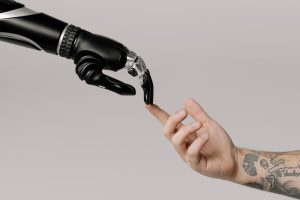Artificial intelligence (AI) integration into the workforce has sparked both excitement and apprehension in a time of rapid technological advancement. Recent studies reveal that 19% of American workers held jobs in 2022 that were deemed highly susceptible to AI disruption, underscoring the need for a thoughtful approach. Moreover, Challenger, Gray, and Christmas reported a significant reduction of 3,900 jobs in May 2023 due to AI implementation, highlighting the transformative potential of this technology.
However, reactionary extremes, such as the outright banning of AI in workplaces, may not be the most effective strategy for business leaders. Instead of rushing to replace human roles with AI or shunning it altogether, companies should envision AI as a co-pilot—a partner in enhancing productivity and performance.
Historical precedents caution against a 'Us versus Them' mentality. Giants like Movie Gallery and Blockbuster failed to adapt to the rise of streaming platforms, leading to their bankruptcy. This lesson underscores the importance of embracing technological shifts rather than resisting them. The adage "If you can't beat them, join them" takes on new relevance in the age of AI.
Replacing workers with AI is not a one-size-fits-all solution. While cost savings and growth are paramount for any organization, an overreliance on AI can jeopardize critical business functions. Notably, a June 2023 study in the education sector sheds light on potential pitfalls. It indicates that while AI can streamline tasks, it also erodes human decision-making abilities and can lead to complacency. This cautionary tale resonates in the business realm, where AI should complement, not supplant, human creativity and critical thinking.
To harness the true potential of AI, businesses should adopt a co-pilot approach. For instance, automating data entry liberates employees from mundane tasks, enabling them to focus on higher-level cognitive functions. This shift empowers workers to validate and analyze data rather than tediously inputting it. The result is a workforce equipped to engage in predictive modeling and strategic thinking.
Moreover, AI enables employees to redirect their time and energy towards innovation. By automating repetitive tasks, individuals gain the bandwidth to generate and implement groundbreaking ideas. This dynamic not only enhances overall productivity but also fosters a culture of creativity and ingenuity within the organization.
This approach ensures that businesses not only thrive amidst technological disruption but also lead the way in shaping it.




















